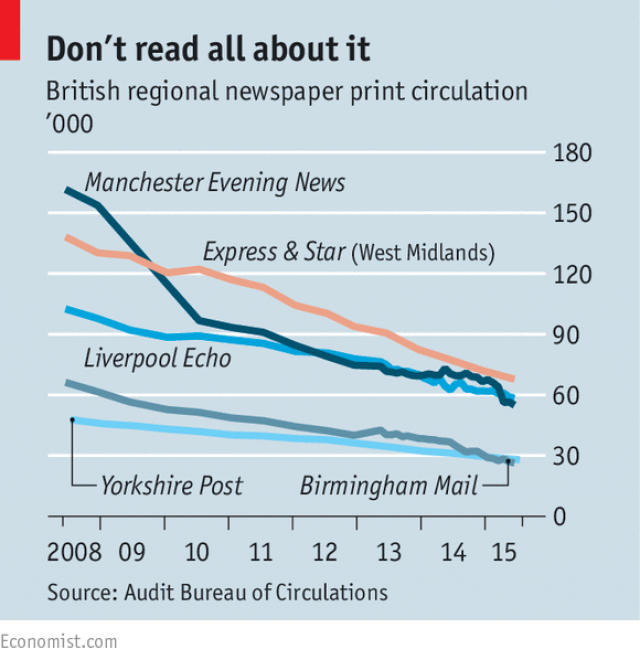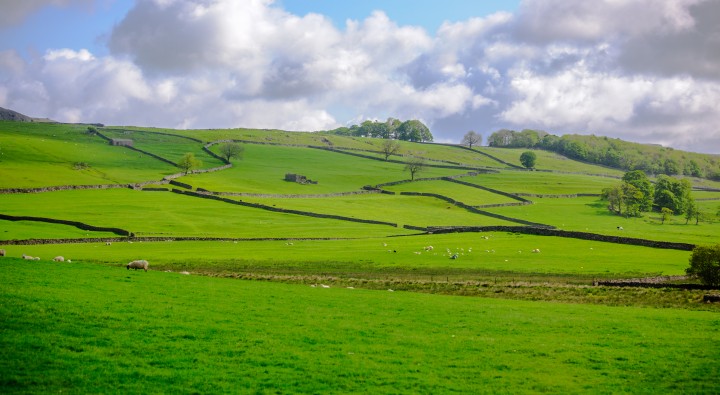Brexit is dominating everything at the moment – and it can be easy not to look beyond the latest twist in what’s happening in Westminster, or the recent EU Elections to see how the campaigning landscaping is changing around us.
But here are 5 stories that you might have missed that point to other important trends that could be as important as Brexit in shaping the context we can campaign in.
1) A plan to stop the collapse of local journalism – reporting in February, the Cairncross Review examined what steps could be taken to ensure a sustainable future for high-quality journalism.
The review is a good review of the current (ill) health of local media, but why does that matter to campaigner? Well, using local media is an important and effective way for many campaigners to get their message out, and help to demonstrate support for an issue in a community, but as the Review pointed out that print sales of national and local printed newspapers have fallen by roughly half between 2007 and 2017 cutting those opportunities.

The review identified investigative journalism as a particular area which has seen significant cuts – partly due to the cost, for example, The Independent set out its predicted costs for a dedicated investigations team as half-a-million- pounds a year, but as an area that can be important for putting issues onto the agenda – something that Greenpeace has shown by setting up Unearthed – it’s own investigative journalism unit.
2) Facebook bans Brexit – OK, so this has got a little to do with Brexit, but in response to mounting criticism that Facebook needed to do more to ensure that adverts linked to political issues it’s instituted new policies and approaches, which require more – but that’s led to some unexpected turns, take political comedian Matt Forde who’s adverts about his upcoming tour got taken down because they mentioned Brexit.
Not a big deal for campaigners perhaps, but with Facebook still an important channel for acquisition and sharing of content the threat of the platform continuing to tighten its editorial policies on what is and isn’t allowed on social media. It’s something that other campaigning organisations have also spotted, for example, this PS in a recent email from 350.org.

And at the same time, Buzzfeed found that the biggest spender of political adverts on Facebook wasn’t a political party, but a shadow pro-Brexit campaign organisation’s who’s funding source is unclear, and only staff member is a freelance writer.
3) Private public spaces mean no protest – we might have marveled at the way Extinction Rebellion took over public spaces in London back in April, but as this article from Guy Shrubsole shows how more and more of the space in our cities is held by private companies.
This isn’t a new trend, but the challenge of the increasing rise in privately owned public spaces in big cities has impacts for the right to protest, with private firms able to prevent gatherings as one of many things that can be banned under private bylaws – want to hold a campaign stunt in Canary Wharf for example that’s not allowed as it’s owned by a private company, who’ve even banned taking photographs.
4) The changing shape of political parties – the start of the year was marked by stories of infiltration into the Conservative Party by former members of UKIP who were prepared to push out those MPs whose views they disagreed with – although reports of this have declined since the formation of Change UK.
And while membership of political parties (with the exception of Labour) is in decline overall – the evidence from both the main parties over the last few years has been that the composition of the membership is having more of an impact on the policy agenda, focus and direction of a party than in the past – although the difference between the Labour leadership on the People’s Vote shows it doesn’t always work (yet!).
But beyond that, the Brexit Party has taken a totally different approach, forming as this long-read from the Guardian explores, a private company where supporter pay £25 but have no opportunity to shape the parties position.
As campaigners, we can often pay limited attention to what’s happening inside political parties, focusing on what’s happening between them, but understanding how they operate is becoming increasingly important.
5) Clarifying if we can campaign or not – no list of campaigning trends could be complete without a look at the latest actions of the Charity Commission, this time focusing on the activities of the Institute of Economic Affairs, who were issued a warning around the publication of a report on Brexit which was looking to ‘change government policy on an issue unrelated to the charity’s purposes – furthering education –which constitutes a breach of the Commission’s guidance on political activity and campaigning’ .
But this isn’t about the IEA, but as this blog from Pete at SMK highlights it’s the way that the media report the warning being issued – implying again that charities can’t campaign when of course we can campaign if it’s related to a charity’s purpose. An important one to watch at it highlights the continued misunderstanding by many of the role for charities in securing change.

